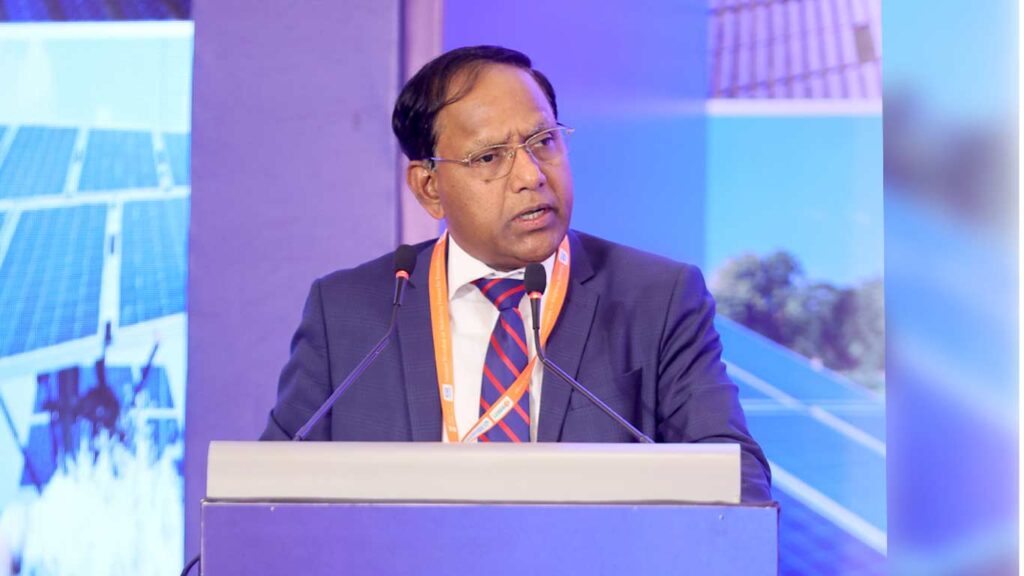Mumbai, Feb 25 (KNN) M Nagaraju, Secretary of the Department of Financial Services (DFS), announced on Monday that India’s ambitious goal of achieving 500 gigawatts (GW) of renewable energy capacity by 2030 will require an investment of Rs 33 lakh crore.
Speaking at the National Workshop on Mobilising Finance for Renewable Energy in Mumbai, Nagaraju outlined the funding strategy for this significant national initiative.
The DFS Secretary explained that public sector banks have committed Rs 10 lakh crore to the renewable energy sector, which represents approximately one-third of the total required investment.
The remaining two-thirds of the funding is expected to come from private investors. Nagaraju highlighted the attractiveness of renewable energy equity investments, noting that they continue to draw significant investor interest due to their sustainable nature and future-ready positioning.
This renewable energy target stems from India’s commitment made at the COP26 Summit in Glasgow in 2021, where the country pledged to reduce emissions by achieving 500 GW of non-fossil fuel-based energy generation by 2030.
To facilitate this goal, the government announced in 2023 a strategic plan to add 50 GW of renewable energy capacity annually over the next five years.
Recent data from the Ministry of Power indicates that India has already reached a significant milestone in its renewable energy journey, with the country’s total renewable energy capacity surpassing 200 GW.
According to the Central Electricity Authority, the precise figure now stands at 203.18 GW, underscoring India’s growing commitment to clean energy and its substantial progress toward building a more sustainable future.
The data further reveals impressive growth in India’s renewable energy sector, with installed capacity increasing by 24.2 GW (13.5 percent) in just one year.
This represents a rise from 178.98 GW in October 2023 to 203.18 GW in October 2024. When nuclear energy is included in the calculations, India’s total non-fossil fuel capacity reached 211.36 GW in 2024, up from 186.46 GW in 2023, according to official sources.
This substantial financial commitment and the significant progress already achieved demonstrate India’s determination to transition toward cleaner energy sources while addressing global climate challenges through renewable energy expansion.
(KNN Bureau)


















